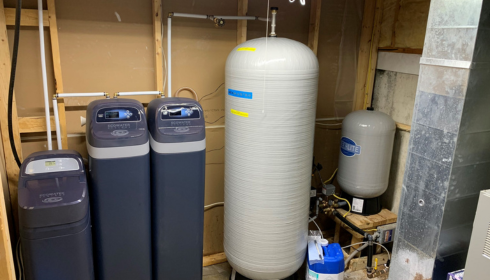Why Businesses Are Paying More Attention to Deionized Water
Water isn’t just water. At least, not in the world of manufacturing, healthcare, or even certain food and beverage industries. While most of us take what comes out of the tap for granted, some businesses depend on water that’s stripped of nearly every mineral and impurity—a level of purity that ordinary municipal systems can’t provide. That’s where deionization steps in, turning something as everyday as water into a specialized tool.
When Purity Matters More Than Convenience
If you’ve ever worked in a lab, you already know the importance of deionized water. Even a small trace of calcium or sodium can interfere with experiments, skew results, or corrode sensitive equipment. In industries like electronics or pharmaceuticals, those same impurities can shorten product life or compromise safety. For hospitals, clean water isn’t just a luxury—it’s literally about patient care and compliance.
That’s why businesses don’t just ask about water quality; they actively search for commercial deionization service near me when they realize ordinary filtration doesn’t cut it. It’s not about overcomplicating the process—it’s about protecting operations that can’t afford mistakes caused by something as basic as poor-quality water.
The Behind-the-Scenes Hero
Deionization systems don’t get the spotlight. They hum away in the background, tucked into utility rooms or basements, doing a job few employees ever think about. Yet without them, entire production lines could stall, equipment could fail, or finished products could fall short of industry standards.
It’s kind of like HVAC systems—you don’t notice them until they stop working. Suddenly, the room is uncomfortable, the machines overheat, or processes grind to a halt. That’s when businesses realize just how critical water treatment really is.
Why Maintenance Isn’t Optional
Here’s a truth many facility managers learn the hard way: deionization systems need consistent upkeep. Resins degrade, flow rates shift, and performance dips if things aren’t monitored. Left unchecked, the “pure” water isn’t so pure anymore, and that defeats the whole purpose.
That’s why companies turn to a deionization system maintenance service rather than trying to handle it in-house. Sure, someone could be trained to swap tanks or monitor conductivity, but the stakes are too high for guesswork. Proper maintenance isn’t just about extending the life of the system—it’s about guaranteeing reliability day after day.
Thinking About the Cost Equation
Let’s be real: professional services aren’t cheap. But in the world of water treatment, the real expense often comes from downtime or product recalls. Imagine an electronics plant discovering that trace minerals ruined an entire batch of components. Or a medical facility dealing with sterilization equipment failure because the water supply wasn’t as clean as it should’ve been. Suddenly, the cost of skipping maintenance looks tiny compared to the cost of recovery.
Investing in reliable service is less about spending more—it’s about protecting against losses that could easily spiral into six or seven figures.
A Trusted Name in the Mix
The water treatment market is full of options, but not all services are built the same. Some focus on quick fixes, others on long-term partnerships. Among the more established names, the EcoWater deionization system service stands out for one reason: they’ve built trust by combining advanced technology with local support. Businesses don’t just need a machine; they need a partner who understands regional water challenges, industry requirements, and the importance of ongoing service.
When a company chooses a provider like this, they’re not just buying equipment—they’re buying confidence that their operations won’t get derailed by overlooked details.
The Human Side of a Technical Story
It’s easy to get lost in the technical jargon—ions, resins, conductivity—but at the end of the day, this is a story about people. A technician who knows the quirks of your facility. A plant manager who can breathe easier because water isn’t on their worry list. A business owner who can focus on growth instead of chasing down equipment failures.
That human layer is often overlooked. Yet it’s what makes a technical service feel less like a cold transaction and more like a partnership that truly supports the business.
How Businesses Integrate Deionization into Operations
For some companies, deionization systems are tied directly into production lines. For others, they’re part of research and development facilities. Some use them for cleaning processes where residue simply can’t be tolerated. The applications are broad, and that’s what makes professional advice so important.
A cookie-cutter system rarely fits perfectly. Local water sources vary. Industry requirements vary. Even usage patterns within the same building can change what type of setup is ideal. That’s why installation and service aren’t just about hooking up equipment—they’re about designing solutions that actually fit the daily realities of a workplace.
A Quiet Competitive Advantage
It might not sound flashy, but reliable water quality can become a competitive edge. If your business can consistently produce without interruption, while a competitor down the street struggles with equipment issues tied to poor water, that difference shows up in delivery times, customer satisfaction, and long-term reputation.
Sometimes, the smallest unseen systems give you the biggest edge.
Wrapping It All Up
We live in a world where businesses juggle a thousand moving parts—supply chains, employees, technology, customer demands. Water doesn’t usually top the list of concerns. Yet for industries that depend on absolute purity, it quietly underpins everything.
Deionization isn’t a luxury. It’s a backbone system, the kind you only notice when it falters. With the right setup and steady maintenance, it can deliver peace of mind that your operations won’t stumble over something as fundamental as water quality.
So if you’re running a facility and haven’t thought about what’s really flowing through your pipes, maybe now’s the time. It doesn’t take a crisis to justify action—just the recognition that clean, consistent water isn’t optional. It’s essential.

